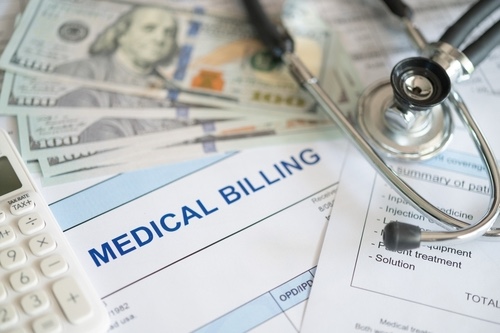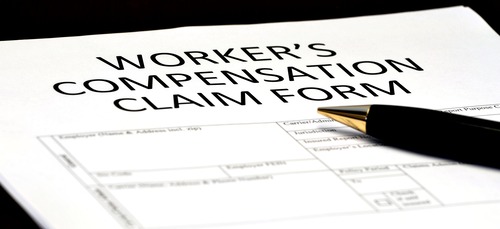Workers’ Compensation Laws In Florida
- Workers' Compensation
Have you been injured at your workplace? As an employee, you are rightly entitled to compensation as per worker’s compensation laws in Miami, Florida.
Depending on the extent of your injuries, you can claim benefits as per worker’s compensation laws. But how to know if you are eligible for the claim. What are the terms and conditions to claim worker’s compensation in Miami?
How to know if your employer will provide worker’s compensation? Here are answers to all these questions and how a worker’s compensation lawyer in Miami can be of immense help.
Worker’s Compensation Laws in Florida
Here are some important facts employers and employees in Miami should know about Florida worker’s compensation laws.
What Business Must Have Worker’s Compensation Insurance?
Florida requires most employers to have worker’s compensation insurance. According to Florida’s worker’s compensation law, employers who have at least four employees working under them require worker’s compensation insurance.
This insurance will cover the expenses incurred on work-related injuries. It doesn’t matter if the workers are working full time or part-time, such employers should purchase worker’s compensation insurance. This insurance helps employers in paying for the worker’s compensation.
In Florida, sole proprietorships or partnerships are not required to buy a worker’s compensation insurance by law. However, they can do so voluntarily.
Special Rules for Construction Businesses
In Florida, construction businesses have to mandatorily have worker’s compensation insurance for both the employees and the contractors.
However, other industries and businesses with independent contractors are exempt from such law.
Penalties for Non-Compliance
As per worker’s compensation laws in Florida, if the employer does not carry worker’s compensation insurance, they are subject to legal penalties. The investigators may conduct an audit for the same.
They can impose fees and penalties for such non-compliance. They can also put a stop-work order on such businesses. According to this, the companies cannot resume operations until they pay the designated fines and penalties.
A stop order can also be imposed in case:
- A business violates the worker’s comp insurance policy
- Conceals the employee’s duties
- Understates the company’s payroll
Criminal Prosecution
Violation of worker’s compensation laws can also lead to criminal proceedings. There are various actions as part of an employer that can be considered a felony or misdemeanor in Miami, Florida.
Some of these acts may include:
- Refusing to hire an employee that has filed a claim for benefits
- It is unlawful on the part of the employer to intentionally fail to update the coverage information
- It is unlawful to deduct the employee’s pay as part of worker’s compensation benefits.
Many other acts are considered first, second and third-degree felonies in Florida.
Deadlines for Worker’s Compensation
The worker’s compensation laws in Florida specify important deadlines an injured worker must meet in order to receive benefits. You must report a work-related injury or illness to your employer as soon as possible. If you don’t report the injury within 30 days, your claim can be denied.
Your employer should notify the insurance company of your claim. If your claim is denied or you feel the amount is too low, you can file a “Petition for Benefits” with the Florida Division of Workers’ Compensation. You must do this within two years of the work-related injury or within one year of the last payment for medical benefits or lost wages.
Worker’s Compensation Benefits
Miami’s worker’s comp laws also specify the benefits the injured employee is entitled to. The maximum weekly compensation for work-related injuries and illnesses is 100% of the statewide average weekly wage.
The benefits are also limited depending on the type of your injury. There are four types of wage loss benefits: temporary total disability (TTD), temporary partial disability (TPD), permanent partial disability (PPD), and permanent total disability (PTD).
Temporary total disability (TTD) benefits are limited to two-thirds of your average weekly wage. This can be increased to 80% for severe injuries like vision loss. For temporary partial disability, the benefits are limited to 80% of the difference between your current income and 80% of your pre-injury wages (80% of wages earned pre-injury – wages post-injury). You can only claim TPD benefits if you are unable to earn at least 80% of your pre-injury wages.
Permanent partial disability benefits are benefits when the worker has a permanent disability due to injuries. Such benefits are determined with the help of impairment ratings. This rating is provided by the doctor itself. Thereafter, an injured employee can calculate the impairment benefit using the impairment income benefit calculator in Florida.
If you cannot work any job due to your injuries, you can receive permanent total disability benefits. These benefits are paid at the same rate as temporary total disability benefits.
Time Limits on Benefits
There is a limit time set for how long you can receive each type of disability benefit in Florida.
If you have a temporary disability, you won’t receive benefits for the first 7 days after your injury unless you can’t work for more than 21 days. If you are unable to work for longer than 21 days, you’re entitled to benefits for the first 7 days.
At the maximum, you can receive benefits for a maximum of 104 weeks only. Also, if you receive 80% of the wages even after post-injury, you are entitled to only six months.
You can receive permanent disability benefits until you turn 75 or for the rest of your life if you don’t qualify for Social Security benefits.
Medical Treatment
Workers’ comp pays for all necessary medical treatment for your work-related injury. In Florida, the worker’s compensation insurance company has to authorize the doctor treating you to be entitled to the benefits.
When to Hire a Worker’s Compensation Attorney in Miami?
At times, employees may be unaware of what benefits they deserve as part of worker’s compensation. As a result, they are unfairly denied benefits by the insurance company.
In such a case, a worker’s compensation attorney or a Miami personal injury attorney with experience in workers’ compensation cases can help. A workers’ compensation attorney knows the ins and outs of the law and will fight to ensure you receive your rightful benefits.
Call us today at (786) 686-2857 for a free case review.







